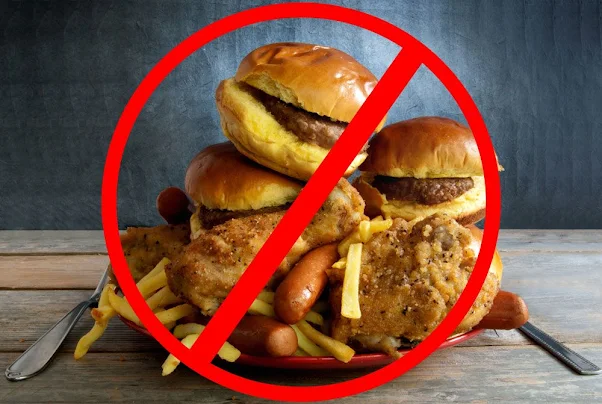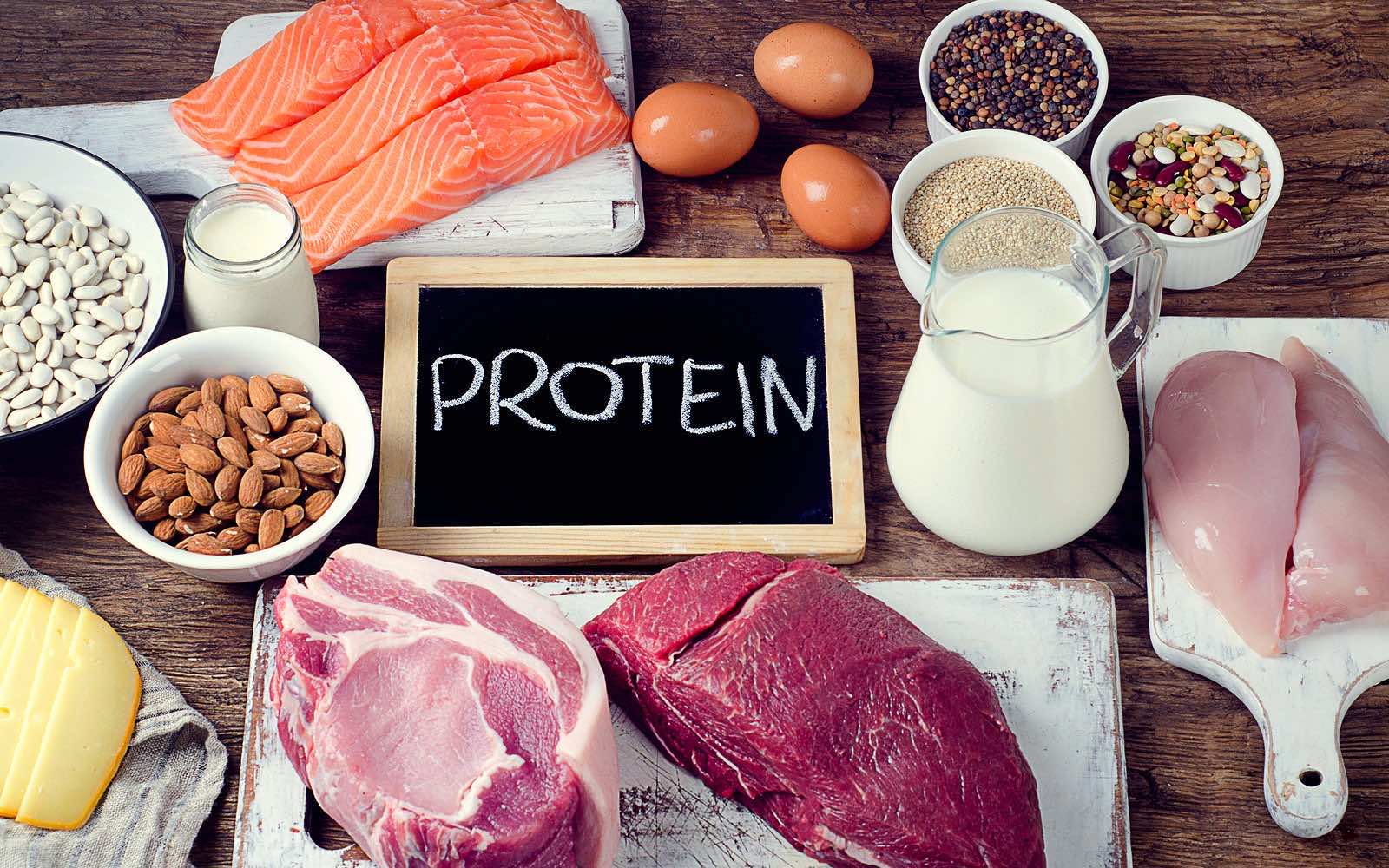"Healthy Habits for Weight Loss: Four Essential Tips for Success"
Eat a balanced diet: A balanced
diet that includes plenty of fruits and vegetables, whole grains, lean protein,
and healthy fats can help you feel full and satisfied while consuming fewer
calorie
Eating a
balanced diet is an essential part of a healthy lifestyle. A balanced diet
provides your body with the nutrients it needs to function properly and can
help you maintain a healthy weight, reduce your risk of chronic diseases, and
improve your overall well-being. In this article, we'll explore what a balanced
diet is, why it's important, and how to achieve it.
What is
a balanced diet?
A
balanced diet is one that includes a variety of foods from all the food groups.
The food groups are:
1. Fruits
and vegetables: These are packed with vitamins, minerals, and fiber, which can
help reduce your risk of chronic diseases such as heart disease, stroke, and
certain types of cancer.
2. Grains:
Whole grains, such as brown rice, quinoa, and whole-wheat bread, provide energy
and fiber. They are also a
Reduce portion sizes: By reducing the portion
size of your meals, you can consume fewer calories while still feeling full.
Reducing
portion sizes is an effective strategy for weight management and improving
overall health. Portion sizes have increased over the years, contributing to
the rise in obesity rates. In this article, we'll explore why reducing portion
sizes is important, and offer some tips to help you do so.
Why
reduce portion sizes?
Overeating,
or consuming more calories than your body needs, can lead to weight gain and a
host of health problems such as high blood pressure, heart disease, and type 2
diabetes. By reducing portion sizes, you can still enjoy your favorite foods
while keeping your calorie intake in check.
Tips to
reduce portion sizes:
Use
smaller plates: Using smaller plates can make your portions look larger,
helping you feel more satisfied with less food.
Measure
your portions: Use measuring cups or a food scale to measure appropriate
serving sizes for your meals.
Eat
slowly: Eating slowly can give your brain time to register when you're full,
helping you avoid overeating.
Avoid
distractions: Eating while watching TV or using your phone can lead to mindless
eating and overconsumption. Try to focus on your food and savor each bite.
Don't
skip meals: Skipping meals can lead to overeating later in the day. Eating
regular meals and snacks can help you manage your hunger and avoid overeating.
Pack
leftovers: Instead of finishing your entire meal, pack up the leftovers for
another meal. This can help you reduce portion sizes while saving money on
food.
Choose
nutrient-dense foods: Choose foods that are rich in nutrients, such as fruits,
vegetables, whole grains, and lean proteins. These foods can help you feel full
and satisfied while consuming fewer calories.
Drink water: Drinking water
before meals can help you feel full and reduce the amount of food you eat. It
is also important to stay hydrated throughout the day.
Drinking
water is a simple yet powerful way to improve your health. Water is essential
for your body to function properly, and it plays a crucial role in numerous
body functions. In this article, we'll explore the benefits of drinking
water, how much water you should drink, and tips for staying hydrated.
The
Benefits of Drinking Water:
1. Keeps
you hydrated: Water is essential for maintaining hydration, which is important
for proper bodily functions. Staying hydrated can help you feel more alert,
improve your mood, and reduce fatigue.
2. Aids
digestion: Drinking water can help your body break down food, making it easier to
digest and absorb nutrients.
3. Support
healthy skin: Drinking water can help keep your skin hydrated, which can
improve its elasticity and prevent dryness and wrinkles.
4. Promote
weight loss: Drinking water can help you feel full, which can help you eat
fewer calories and support weight loss efforts
5. Helps
flush out toxins: Water helps flush out toxins and waste products from the
body, which can help keep you healthy and prevent illness.
Exercise regularly: Exercise can
help you burn calories and increase your metabolism. It is recommended to aim
for at least 30 minutes of moderate-intensity exercise most days of the week.
Regular
exercise is essential for a healthy lifestyle. It can help you maintain a
healthy weight, reduce your risk of chronic diseases, improve your mood, and
increase your overall well-being. In this article, we'll explore the benefits
of regular exercise and provide tips for making it a part of your daily
routine.
The
Benefits of Regular Exercise:
1.Weight
management: Regular exercise can help you maintain a healthy weight by burning
calories and increasing your metabolism.
2. Chronic
disease prevention: Exercise has been shown to reduce the risk of chronic
diseases such as heart disease, diabetes, and certain types of cancer.
3. Mood
improvement: Exercise can help reduce stress and anxiety, improve your mood,
and boost your energy levels.
4. Improved
sleep: Regular exercise can improve the quality of your sleep, helping you feel
more rested and energized.
5. Increased
strength and flexibility: Exercise can improve your strength and flexibility,
making it easier to perform daily activities and reducing your risk of injury
Tips for
Making Exercise a Part of Your Daily Routine:
1. Start
slowly: If you're new to exercise, start with low-impact activities such as
walking or swimming, and gradually increase the intensity and duration of your
workouts.
2. Find
an activity you enjoy: Choose an activity that you enjoy, such as dancing,
biking, or yoga, to make exercise more fun and sustainable.
3. Schedule
your workouts: Set aside time in your schedule for exercise, just like you
would for any other important appointment.
4. Make
it social: Exercise with friends or family members to make it more enjoyable
and hold yourself accountable.
5. Vary
your workouts: Mix up your workouts to prevent boredom and challenge your body
in new ways.
6. Track
your progress: Keep track of your progress, such as how far you walk or run, to
stay motivated and see how far you've come.
7. Be
consistent: Consistency is key when it comes to exercise. Aim to exercise most
days of the week for at least 30 minutes.









































